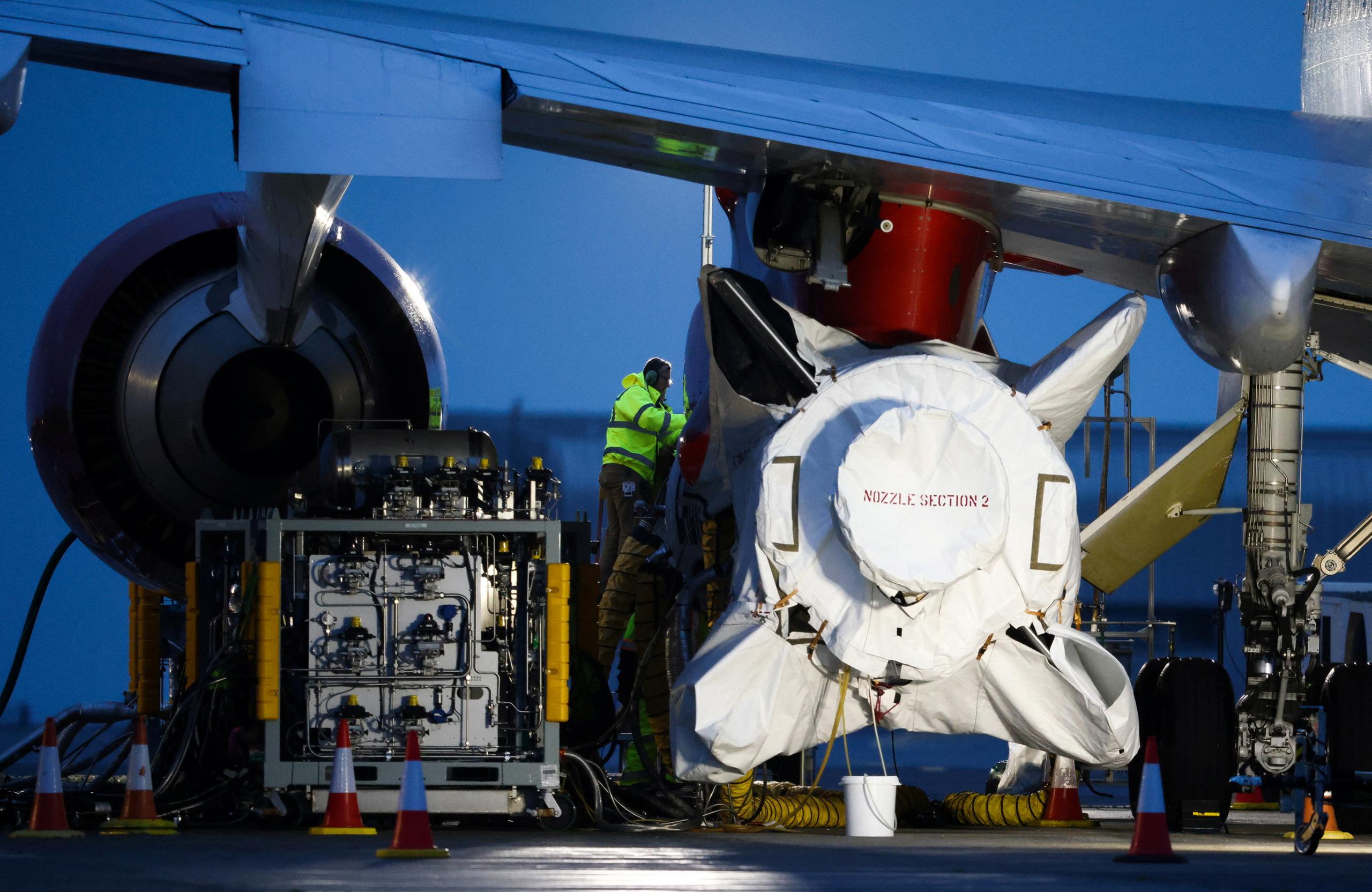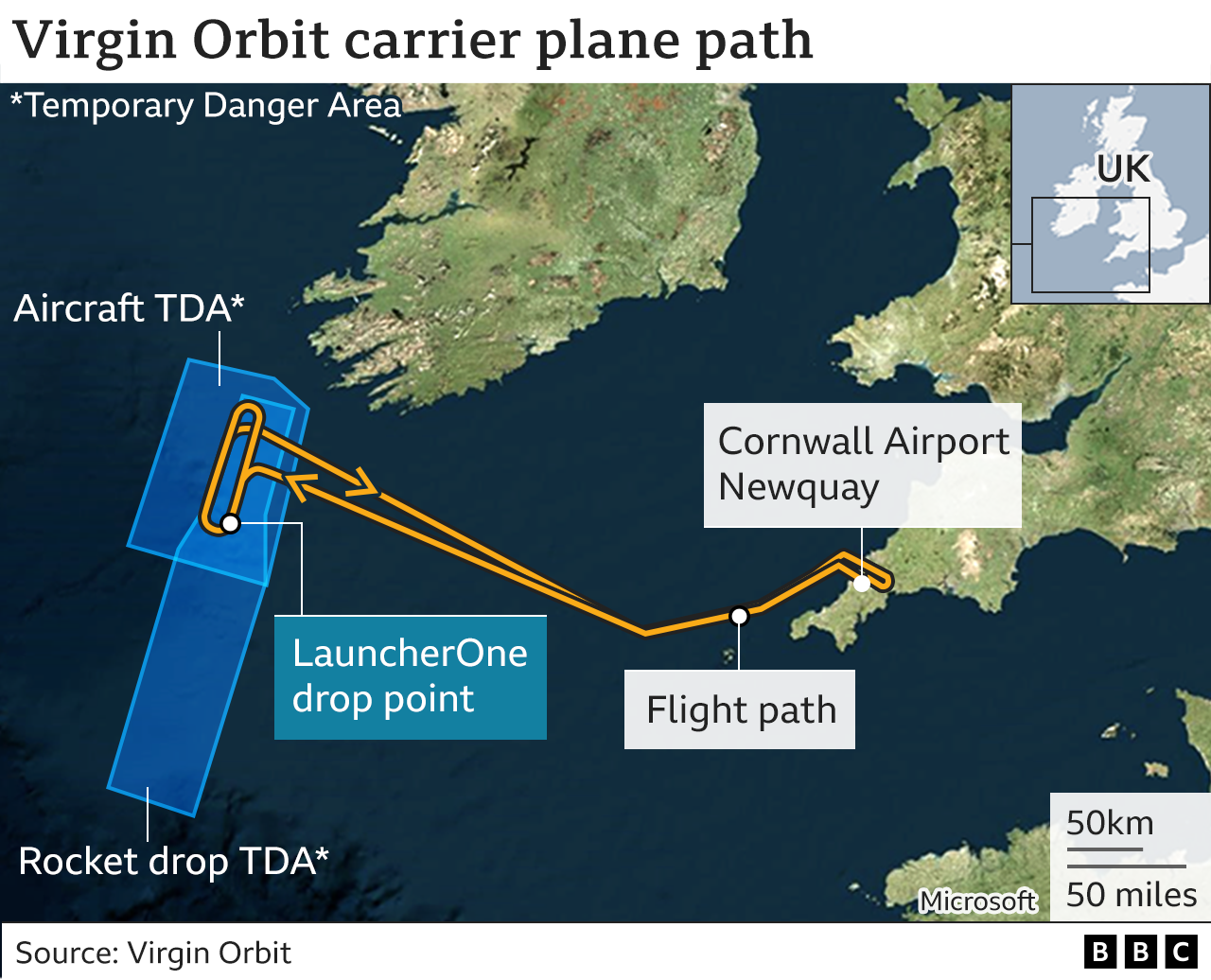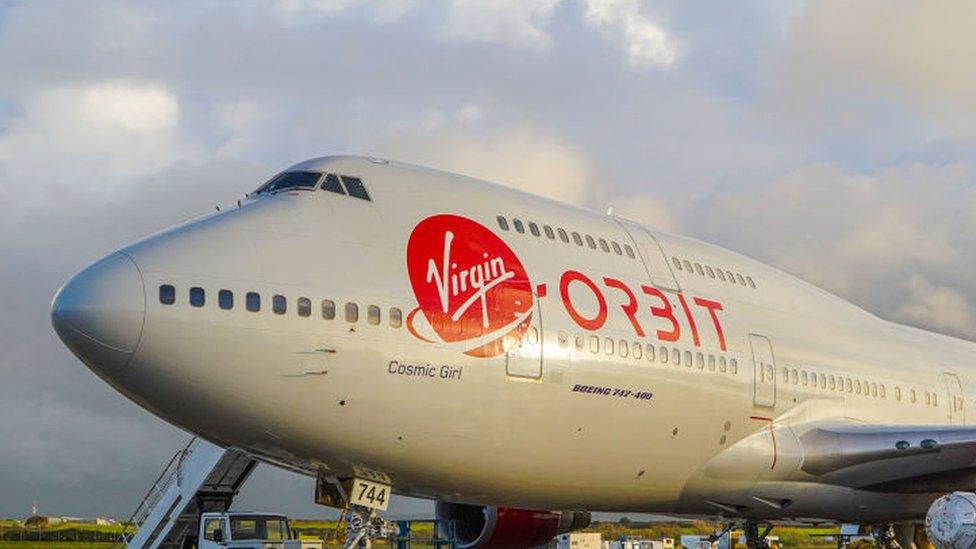Rocket debris warning to boats off Irish coast

Technicians work on Virgin Orbit's LauncherOne rocket in Cornwall
At a glance
Seafarers are told to avoid a "hazard area" during a UK rocket launch.
The warning was issued by the Irish Department of Transport.
It was sent in advance of the Virgin Orbit launch over the Atlantic.
It warned of the low possibility of falling debris if there is a "mishap".
- Published
The Irish government has warned all boats to avoid an area off the Irish coast during the Virgin Orbit space launch.
It warned of the low possibility of rocket debris falling from a height if anything goes wrong during the bid to release a rocket over the Atlantic.
A "marine hazard area" has been declared in an area of the Atlantic Ocean off the coast of counties Kerry and Cork.
The warning comes into effect at 22:00 local time on Monday.
The Virgin Orbit mission is due to take off from Cornwall in England on Monday night.
It is the first ever orbital space launch from British soil and if it is successful it will mark a major milestone for the UK space industry.
The rocket is attached to a repurposed 747 jumbo jet owned by the British billionaire Sir Richard Branson, who also founded the US-based firm Virgin Orbit.
The jet will climb to altitude of 35,000ft over the Atlantic and then release the rocket within a designated launch zone.
If the rocket is successfully launched, nine shoe-box sized satellites will then be released into an orbit more than 500km above Earth.
"Where the launch attempt proceeds as planned, no debris will enter the marine hazard area," the Irish government warning said.
"However, there is a low probability for the vehicle to produce dangerous debris if a mishap were to occur."

The marine notice was issued by the Department of Transport to all seafarers.
It also advised mariners to report any debris or pollution sightings which may result from any mishap during launch.
The jet will take about an hour to travel from Newquay Airport in Cornwall to the launch zone, according to the BBC's science correspondent Jonathan Amos. The rocket will then head in a southerly direction as it gains altitude.
"It will go past the coasts of Spain and Portugal," he told the Good Morning Ulster programme.
"It'll climb high into the sky and it will zoom around the Earth, past Antarctica, come up the other side and it will drop off those nine satellites high above the planet."
The rocket's cargo contains a "combination of satellites" both military and civilian, journalist and commentator Leo Enright told the same programme.
Mr Enright said Virgin Orbit's mission required permission from the Irish government.
"They needed permission from the Irish of course because they're launching out of Irish-controlled air space.
"But they also needed permission from the Portuguese because the rocket motor is going to fall into the Atlantic Ocean off Portugal."
He added: "It's going to be pretty exciting, pretty dramatic."
However, the space enthusiast said he was worried that the weather might force the operation to be postponed.
"I'm looking right now at the weather charts for tonight and there is a big front - what a surprise - moving in," Mr Enright said.
"They'll just about get up and away before it arrives into what they call the race track - the box that they need to be in to launch this satellite - but don't be too surprised if there is a delay."
The marine warning has been put in place between 22:00 on Monday and 01:00 on Tuesday.
Related topics
- Published9 January 2023
